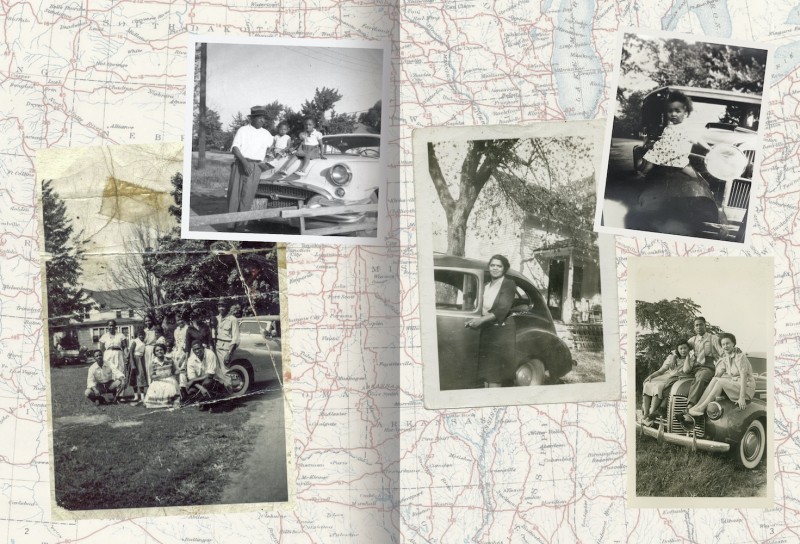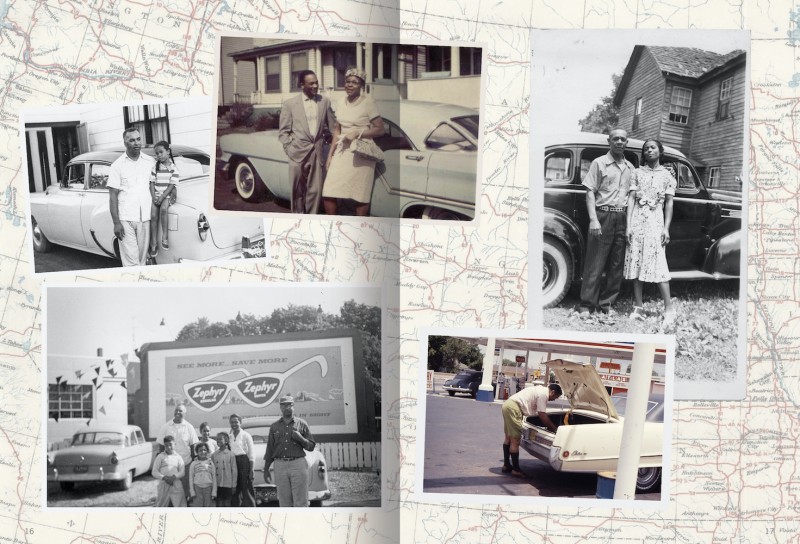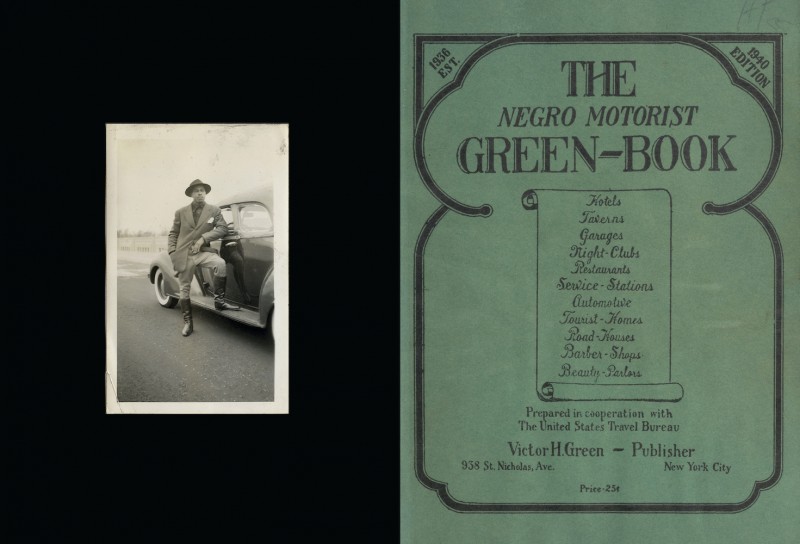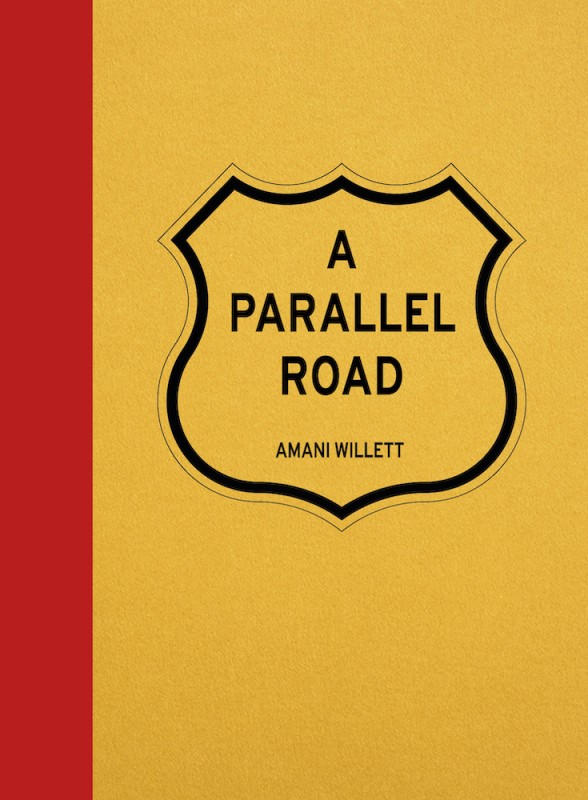Book of the Month: A Parallel Road
Book of the Month: A Parallel Road
Amani Willet
February 8, 2021

Blood on Car, 2018
The complex layout of this photo book is very special: each copy is hand-stitched, has an untrimmed leading edge and comes in a printed protective cover. The design of the small-format book was inspired by Victor Green’s The Negro Motorist Green Book, which was published every year from 1936 to 1966. It was a practical and necessary travel guide, directed at Afro-American drivers. It listed addresses that were considered safe. At the time, due to the systemic racist discrimination, petrol stations, garages and hotels often denied their services to black Americans. Even though the travel guide became formally redundant after discrimination was legally banned in 1964, many of the restrictions and hazards still remain. In this photo book, original pages from the Green Book are overlaid with archival material, ranging from historical photographs and pictures taken by Willett, to ad reproductions and internet screenshots. The reality of systemic racism that still exists today becomes clear.
This is a noteworthy book. It is precisely thanks to the fine craftsmanship that Willett succeeds in creating an insightful portrayal of existing systemic racism, and encourages a dialogue around complex issues of identity, self-perception and freedom.
Amani Willet: A Parallel Road
112 pages, 85 photographs, archival images and screenshots, 12.5 x 17 cm. English, Overlapse
Design: Tiffany Jones
Amani Willet+-
Willet was born in Dar es Salaam, Tanzania. He grew up in Cambridge, Massachusetts, and currently lives in Brooklyn and Boston. He has a BA from Wesleyan University, Middletown, CT; and an MFA in Photography, Video and Related Media from the School of Visual Arts, New York, NY. In his work, Willett explores family, history, memory and social environments. A Parallel Road is his third monograph, following The Disappearance of Joseph Plummer (Overlapse, 2017) and Disquiet (Damiani, 2013). He has been published in Harper's, Newsweek, The New York Times and The New York Times Magazine, among others. More

Blood on Car, 2018
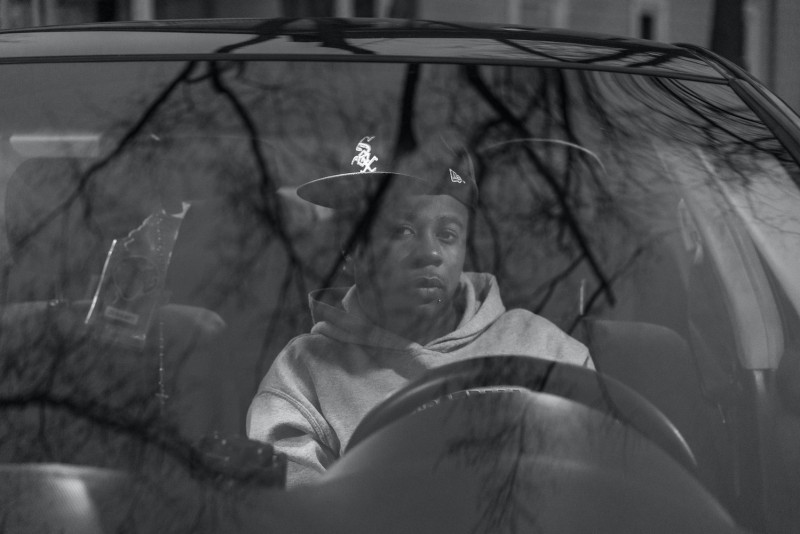
Carlenz, 2018
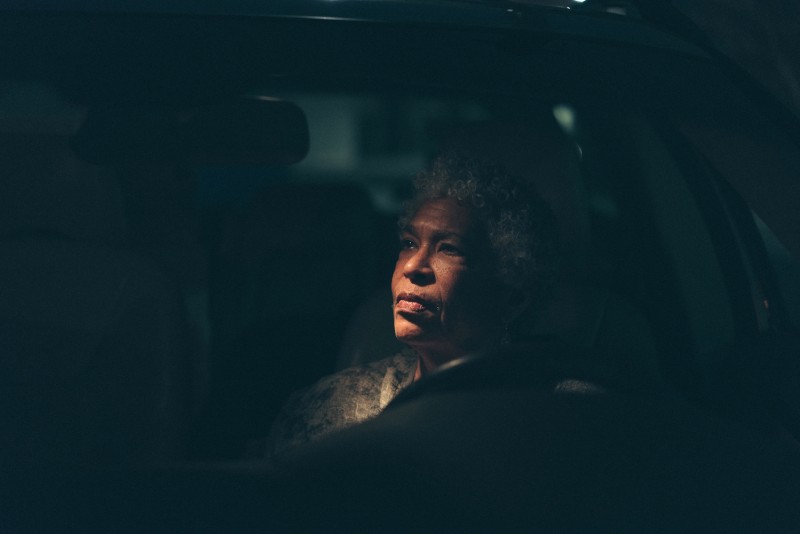
Gail, 2019
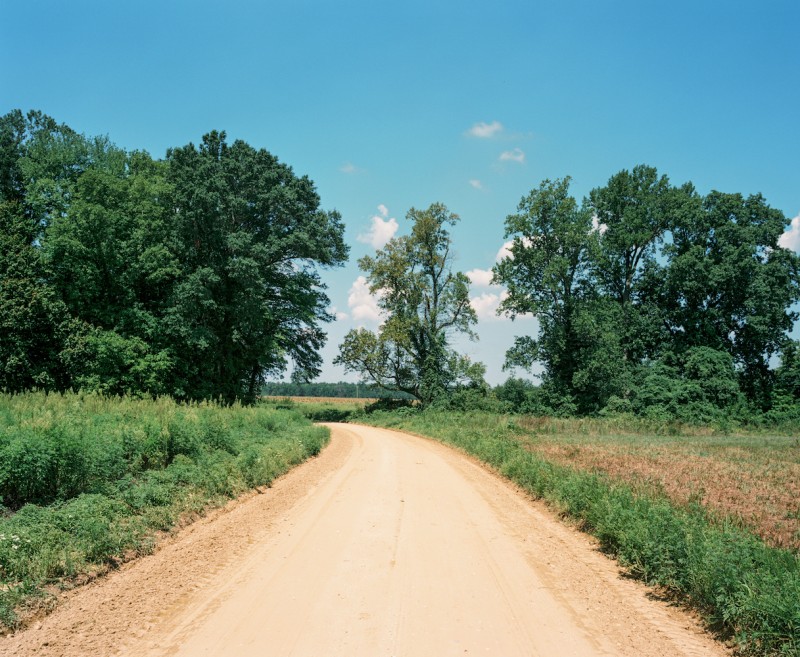
Site of Klan Killing, 2013
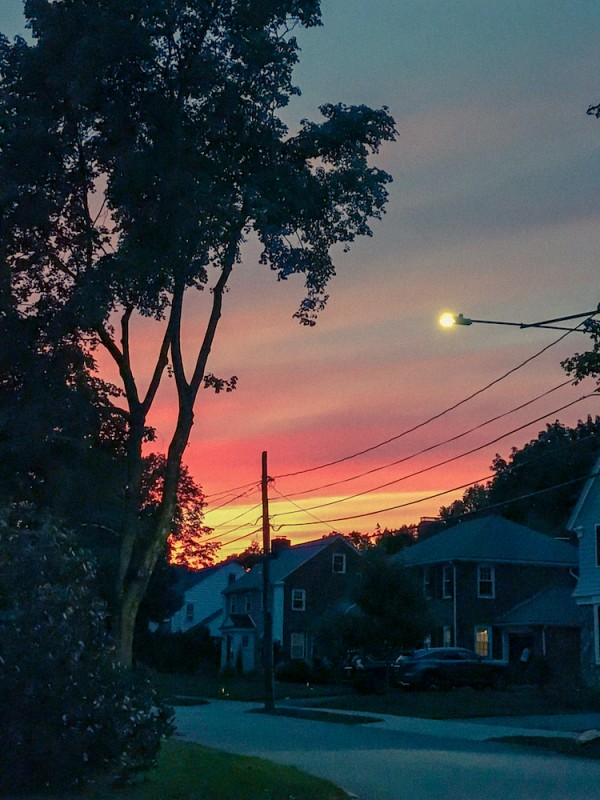
Sundown Town, 2020
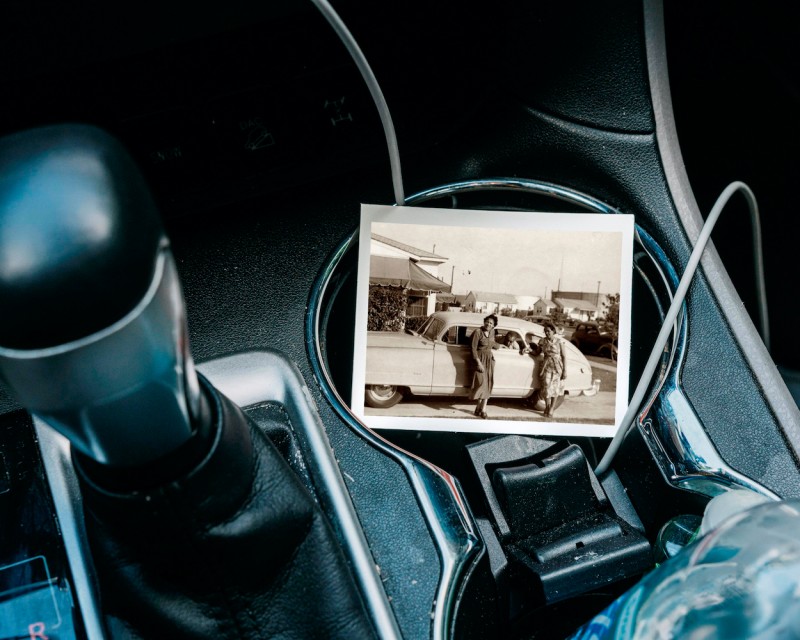
Untitled, 2020
